The expedition used buffalo for food, clothing, blankets, tents, saddle pads, and moccasins for both men and horses.
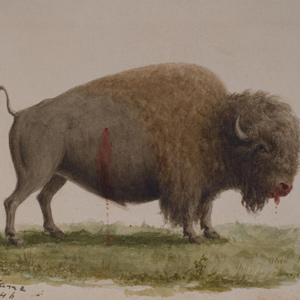

In this interview, Dan Flores, A.B. Hammond Professor of History at The University of Montana, sets the scene at the time of Lewis and Clark, and then discusses some of those circumstances which brought the American bison to the brink of extinction.
Bison Gallery
Art featuring the iconic buffalo
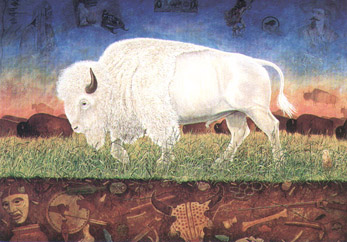
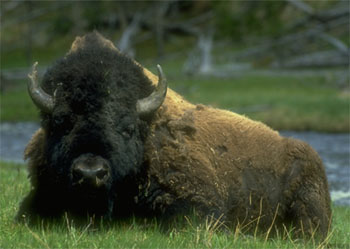
To some extent, the Corps of Discovery used buffalo much as the Indians did–for clothing, blankets, tents, saddle pads, and moccasins for both men and horses. After railroads, demand for buffalo robes soared, the iconic animal’s downfall was swift.
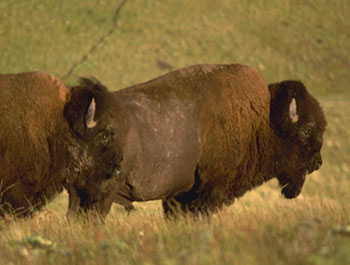
Meriwether Lewis’s recitation of Charbonneau’s recipe for buffalo sausage, known as “white pudding,” serves not only as documentation of a unique frontier cuisine, but also as an example of the captain’s own brand of satire.
Bison Encounters
Bison in the journals
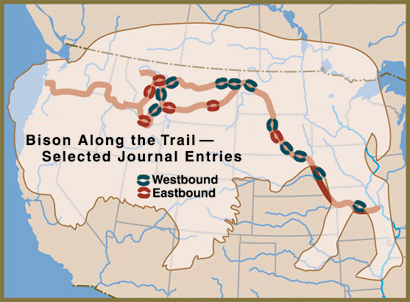
A synopsis of the Expedition’s encounters with the American Bison including 17 key journal entries and commentary.
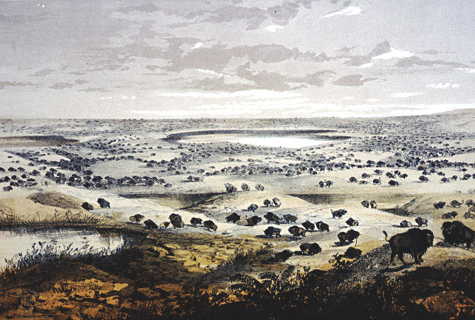

For more than a hundred years the American bison has been enshrined as a symbol of the American West in the first line of a song known around the world, “Home on the Range.”
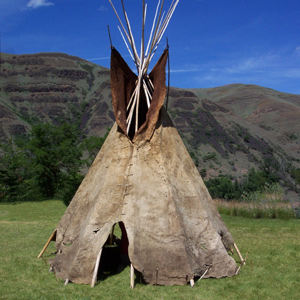
Experience the Lewis and Clark Trail
The Lewis and Clark Trail Experience—our sister site at lewisandclark.travel—connects the world to people and places on the Lewis and Clark Trail.
Discover More
- The Lewis and Clark Expedition: Day by Day by Gary E. Moulton (University of Nebraska Press, 2018). The story in prose, 14 May 1804–23 September 1806.
- The Lewis and Clark Journals: An American Epic of Discovery (abridged) by Gary E. Moulton (University of Nebraska Press, 2003). Selected journal excerpts, 14 May 1804–23 September 1806.
- The Lewis and Clark Journals. by Gary E. Moulton (University of Nebraska Press, 1983–2001). The complete story in 13 volumes.

